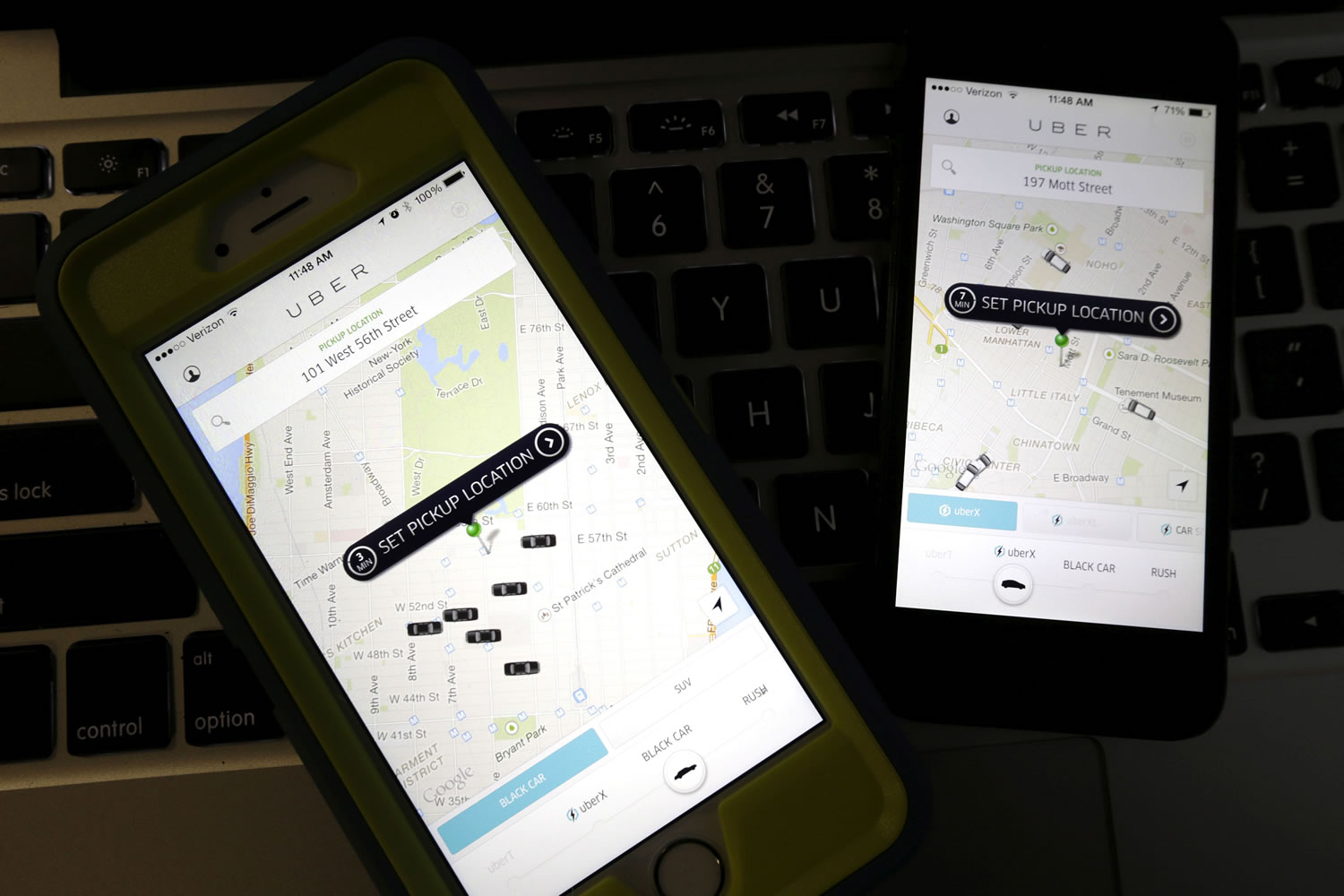For two days in November, taxi drivers didn’t pick up any weary travelers leaving Mineta San Jose Airport. Instead they drove past, honking, and hoping their strike would persuade city leaders to make ride-hiring companies such as Uber and Lyft follow the same rules as taxi companies at the airport.
“Either the city should deregulate us completely, like them … or regulate them at least closer to us, and let there be fair business competition,” said Kirpal Bajwa, a taxi driver and union leader.
Ride-hiring companies, which connect paying passengers and drivers through a mobile app, deliver rides like a taxi service. But they’re not taxi companies, and states and cities are beginning to regulate them differently.
California created permitting and public safety rules for ride-hiring companies in 2013. Over half the states now have regulations in place, according to the National Conference of State Legislatures.
But as San Jose’s experience shows, the debate over how to govern Uber and others is far from over.
Nationwide, some state and local lawmakers worry ride-hiring companies don’t run sufficient background checks on drivers. Taxi drivers say current regulations aren’t fair to them. Cities and states are starting to figure out what taxes and fees the companies might pay. And ride-hiring companies are still testing new ways to move people around town, testing government regulations.
Setting standards
Ride-hiring companies have become very popular very quickly. Uber, the largest of them, was founded in 2009 and now operates in over 300 cities all over the world. Through its app, riders can digitally hail a number of services, including professionally driven limousines, taxis or what Uber calls UberX — a personal vehicle, driven by someone who typically works for Uber in his or her spare time.
The California Public Utilities Commission regulates Uber, Lyft and others as transportation network companies, or TNCs. The state requires TNCs to get a permit and commercial insurance coverage for drivers while they’re working for them and to run criminal background checks on drivers.
That’s the basic structure other states have adopted, according to Uber, although details vary by state. Since the California regulation, Uber and Lyft have started insuring all drivers nationwide at different levels for when they are looking for passengers, on their way to pick them up or transporting them. California passed additional legislation last year to make sure drivers have sufficient insurance coverage.
But some lawmakers, such as San Jose Mayor Sam Liccardo, a Democrat, say the background checks that California requires don’t go far enough: “I am very concerned about safety in this industry.”
News reports keep surfacing of crimes perpetrated by ride-hiring drivers. The Taxi, Limousine & Paratransit Association, an industry group, keeps a running list of incidents worldwide. This summer, San Francisco and Los Angeles district attorneys found that 25 Uber drivers in the two cities had criminal records.
San Jose requires taxi drivers to pass a fingerprint-based background check before they can accept passengers. But the state only requires TNCs to run drivers’ names and Social Security numbers through criminal databases.
Uber spokeswoman Laura Zapata argues that Uber’s current procedures are sufficient because “no background check is 100 percent accurate.” Uber and Lyft also track every ride through GPS and encourage drivers and riders to rate each other’s performance, features that help the company monitor drivers, she said.
California’s regulations prevent cities from making their own TNC laws. But cities do have jurisdiction over airports, so this summer San Jose decided to try requiring such drivers to pass fingerprint-based background checks to pick up airport passengers.
No drivers signed up for the pilot program. And when the city started to reconsider, taxi drivers went on strike. The strike was about fairness, Bajwa said. “We do so much,” he explained, and listed city procedures taxi drivers must follow but ride-hiring drivers don’t, from renewing their driver’s permit every two years to passing additional driver safety tests.
San Jose ultimately decided not to require ride-hiring company drivers to pass a fingerprint-based background check. Instead, drivers who get permits to pick passengers up at the airport will be subject to random, additional checks by airport officials, including background checks and fingerprint tests to confirm their identities.
Liccardo said that’s better than nothing, but city leaders also plan to lobby the state to institute tougher screenings.
The debate over ride-hiring also pushed the city to reconsider its taxi regulations. San Jose’s City Council voted last month to scale back some requirements for taxi drivers, including allowing drivers to work on a temporary basis while they await the results of their fingerprint-based background check.



